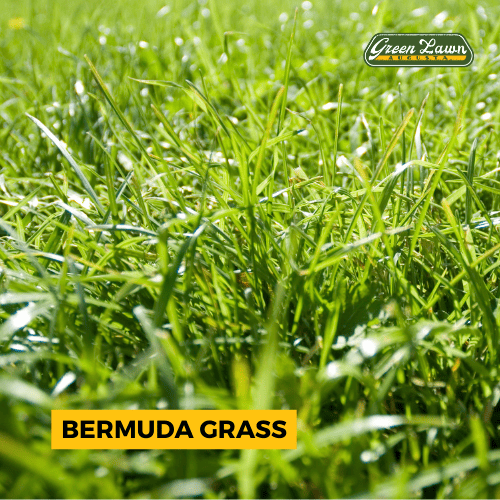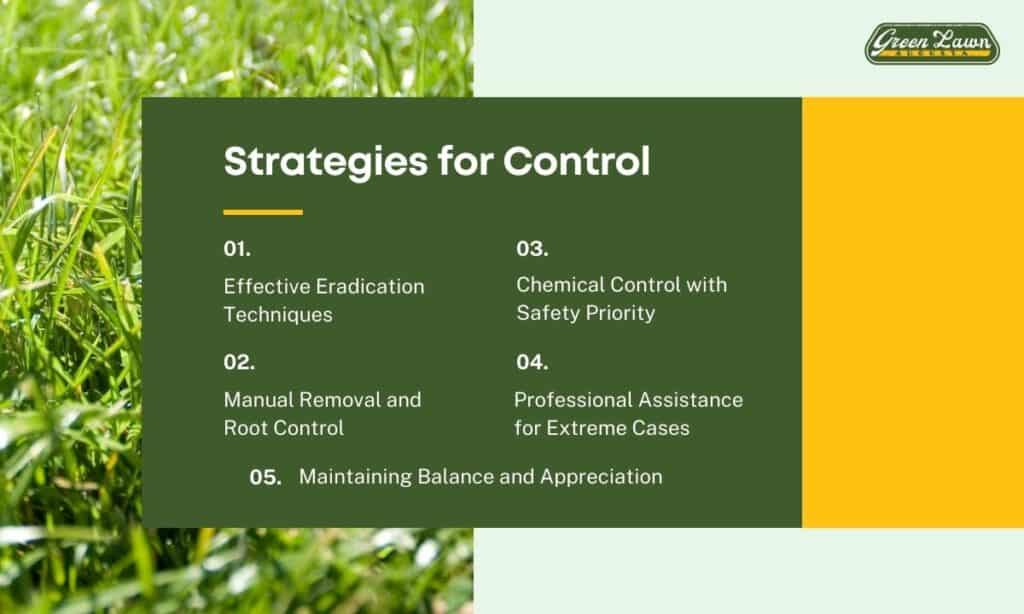Imagine walking barefoot on a lush, green lawn. You feel the softness beneath your feet, but do you ever wonder what kind of grass you’re stepping on?
Breathtakingly resilient and incredibly influential in various ecosystems, Bermuda grass might be under your toes.
This isn’t just any ordinary grass; it’s a powerhouse plant with an extraordinary ability to thrive almost anywhere, making it both a blessing and a challenge for many homeowners.
The impact of Bermuda grass is vast – from its role in ecosystems to its varied uses and challenges in management – it’s more significant than you may realize at first glance.
So, next time you’re strolling across that beautiful lawn or park, remember: there’s probably more going on beneath your feet than meets the eye.
Table of Contents
ToggleKey Takeaways
- Bermuda grass is a resilient and influential plant that provides ground stability and reduces soil erosion.
- It has a deep and aggressive root system, fine texture, and rapid growth rate, making it adaptable to extreme heat and occasional frost.
- Bermuda grass is vital for soil stabilization, agriculture, and athletic performance.
- While managing Bermuda grass can be challenging, effective strategies such as manual removal and chemical control methods can be used to control its growth.
Understanding Bermuda Grass
Don’t be fooled; Bermuda grass isn’t just your ordinary lawn cover; it’s a green carpet that can transform a barren yard into a lush paradise.
As part of your grass identification process, you’ll notice its unique features: the deep and aggressive root system, fine texture, and rapid growth rate.
It’s not merely about aesthetics either.
This miracle worker is known for its climate adaptability too.
Whether dealing with extreme heat or occasional frost, Bermuda grass stands strong.

It provides safety in terms of soil erosion control and drought resistance.
Now that’s reassuring for anyone worried about unpredictable weather patterns messing up their landscape.
Role of Bermuda Grass in Ecosystems

You may not be aware, but this seemingly ordinary lawn plant is vital in various ecosystems worldwide.
With its aggressive growth and dense root system, Bermuda best grass types for Augusta is an unsung hero for soil stabilization.
By firmly gripping the ground beneath it, this humble plant prevents soil erosion, making landscapes safer for everyone.
Imagine steep slopes or riverbanks without vegetation; they’d be susceptible to rapid land degradation that could pose hazards.
But thanks to Bermuda grass’s robustness and tenacity, these areas remain stable and secure from potential landslides or collapses.
Now that you understand how Bermuda grass contributes to ecosystem health and safety let’s delve into its many uses beyond being a lawn staple.
Uses of Bermuda Grass
You might be surprised by the versatility of Bermuda grass.
It’s a valuable tool in agriculture for soil stabilization and providing fodder.
It’s also commonly found on sports fields and recreational grounds. This hardy grass is resistant to heavy traffic and easy to maintain.
Bermuda Grass In Agriculture

Bermuda grass’s robust growth and resilience to harsh conditions have made it an essential crop for preventing soil erosion and improving pasture quality.
Its resistance to drought and several Bermuda grass diseases is a testament to its adaptability.
- Imagine your fields surviving in the scorching summer heat thanks to the Bermuda grass.
- See how resilient this crop is, able to ward off various diseases that can harm your pasture.
- Picture verdant pastures maintained by Bermuda grass, promoting healthier livestock due to improved grazing.
- Envision riverside banks with Bermuda grass planted as buffers against soil erosion.
This remarkable plant’s durability goes beyond farms; it has found its place even in areas where we pursue our leisure activities.
So let’s move on and explore Bermuda grass’s role in sports and recreational grounds next.
Sports and Recreational Grounds
Thanks to this hardy plant, it’s hard to ignore the lush greenery underfoot when teeing off at the golf course or scoring a winning goal on the soccer field.
With its impressive turf durability, Bermuda grass enhances athletic performance by providing a safe and reliable surface.
| Emotional Aspect | How Bermuda Grass Contributes |
| Comfort | The soft yet firm texture gives athletes confidence. |
| Safety | Its dense growth prevents injuries. |
| Satisfaction | It withstands heavy use without losing quality. |
| Joy | The sight of lush green soothes your senses after a tough game. |
So next time you’re enjoying your favorite outdoor sport, remember it’s not just about the game; managing Bermuda grass also plays an essential role in creating those perfect moments.
Let’s delve deeper into how this process occurs next.
Managing Bermuda Grass
Managing Bermuda grass in your lawn can be a challenging but necessary task. It’s crucial to have effective lawn mowing service in place to keep this fast-growing grass under control.
So let’s dive into how you can maintain and manage Bermuda grass without overrunning your outdoor space.
Bermuda Grass in Gardens and Lawns

You’d be amazed to see how Bermuda grass can transform your garden and lawn into a lush, green paradise.
It’s an incredible asset due to its Grass Disease Resistance and the long Bermuda Grass Lifespan. The benefits are numerous:
- Providing a safe environment for outdoor activities:
- Reducing the risk of injury with its cushioning effect.
- Offering a reliable surface for children’s play areas.
- Enhancing your property aesthetics.
- Giving you a sense of satisfaction by maintaining that evergreen appearance.
- Increasing your home value with well-manicured lawns.
With these advantages, it’s clear that Bermuda grass positively impacts gardens and lawns. However, like anything in nature, there must be balance.
Let’s delve into understanding the strategies needed for controlling this robust grass effectively without overwhelming your landscape.
Strategies for Controlling Bermuda Grass

From marveling at Bermuda grass’s adaptability in your lawn, let’s shift gears to how you can control its spread if it becomes too aggressive.
Understanding and implementing effective eradication techniques is a crucial strategy.
Remember, this grass is admired for its resilience; it can withstand droughts, heavy foot traffic, and even some herbicides. So, your approach needs to be thoughtful and thorough.
Start with manually removing the plant, including roots which can reduce its chance of regrowth.
If necessary, resort to chemical control methods but always prioritize safety while handling such substances.
In extreme cases, you might need professional assistance for total eradication with top rated Augustas, GA landscaping company.
It’s all about balance, appreciating Bermuda grass’s strengths without letting it overrun your greenspace.
Frequently Asked Questions on Bermuda Grass
Why is Bermuda grass so popular?
Bermuda grass is popular due to its hardy nature and high tolerance for heat, drought, and high traffic. It spreads quickly and provides a dense, lush, durable lawn resistant to most pests and diseases.
What are the disadvantages of Bermuda grass?
Despite its advantages, Bermuda grass isn’t without its drawbacks. It can be invasive and difficult to control, spreading into flower beds and other areas where it’s not wanted. It also goes dormant and turns brown during cooler months, and it may not be suitable for shaded areas.
What killed Bermuda grass?
Various factors, including improper watering, disease, pests, or inappropriate or excessive fertilizers and herbicides, can kill Bermuda grass.
Does Bermuda grass need a lot of water?
Bermuda grass does not require a lot of water compared to other grass types. However, it does need consistent watering to maintain its vibrant color and growth.
What is the climate for Bermuda grass?
Bermuda grass thrives in tropical and subtropical climates with full sun exposure. It can tolerate heat and drought conditions.
How fast does Bermuda grow?
Bermuda grass grows quickly, especially in the warm months when it gets plenty of sun. It can spread several feet in a single growing season in good conditions.
Is the sun good for Bermuda grass?
Yes, Bermuda grass loves the sun. Growing well requires at least six to seven hours of full sun daily.
Is Bermuda grass summer or winter?
Bermuda grass is a summer grass. It grows best in warm weather and goes dormant, turning brown in winter.
How long does Bermuda grass live?
Bermuda grass is a perennial plant that can live for many years if properly cared for. However, it goes dormant during cooler months, regrowing in the spring.
Conclusion
So, like David in the epic tale of David and Goliath, Bermuda grass plays a significant role in our ecosystem.
It’s not just ordinary grass; it’s a hero providing vital resources and holding our soil together.
Managing it may seem daunting, but even small steps can create monumental changes.
Talk To Us – Green Lawn Augusta
Discover the incredible impact of Bermuda grass on your property and the ecosystem. Learn more about its unique properties and management strategies. Dive into the world of landscaping with Green Lawn Augusta.
Transform your barren yard into a lush paradise.
Reach out to us for your Augusta lawn care needs. Take the first step towards a greener, healthier lawn today!

